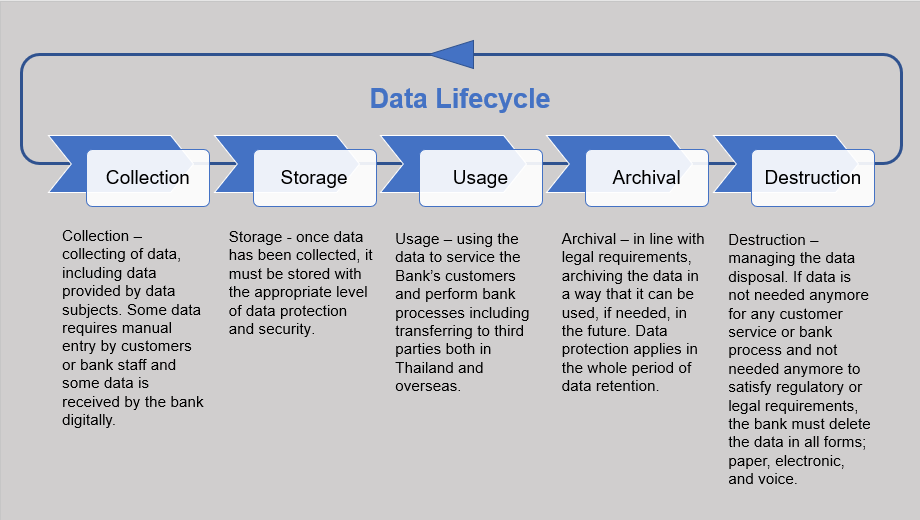The Effect of Effective Data Destruction on Cyber Security Threat Management
The Effect of Effective Data Destruction on Cyber Security Threat Management
Blog Article
The Crucial Nature of Data Devastation in Upholding Computer System Safety Providers and Protecting Versus Unauthorized Access
In a period where data violations and identity theft are significantly widespread, the significance of effective data damage can not be overemphasized. Organizations needs to acknowledge that the failure to properly throw away sensitive details postures not only legal and economic threats however additionally a possible disintegration of customer trust. Various approaches, from information wiping to physical destruction, serve as vital safeguards versus unauthorized access. Understanding the effects of data damage practices and conformity with policies elevates essential inquiries about the competence of current techniques and their lasting practicality in the face of developing risks.
Importance of Data Destruction
In an increasingly electronic world, the relevance of information destruction can not be overstated. As organizations amass large quantities of sensitive info, the potential repercussions of falling short to effectively handle and dispose of that data end up being progressively serious. Information breaches, identity theft, and business reconnaissance posture significant dangers, emphasizing the requirement of efficient information devastation techniques.

Additionally, as innovation develops, so also do the methods whereby harmful actors seek to manipulate sensitive details. Organizations needs to continue to be attentive and positive in their information destruction approaches to guard against these developing hazards. By focusing on data destruction, business not just shield their possessions yet additionally foster count on amongst stakeholders and clients, showing a dedication to accountable data administration and protection methods.
Methods of Effective Data Damage
To make sure the permanent and total destruction of sensitive data, organizations can employ a selection of reliable techniques customized to their certain demands. Among one of the most usual methods is data wiping, which involves utilizing specialized software program to overwrite existing information numerous times, making recuperation basically impossible. This is particularly helpful for hard disk drives and solid-state drives, where typical removal approaches are insufficient.
An additional efficient technique is degaussing, which utilizes strong magnetic areas to interfere with the magnetic domain names on storage media, rendering the information irretrievable. This method is especially matched for magnetic storage devices, such as tape drives and hard drives.
Physical destruction is likewise a sensible choice, including the shredding, squashing, or incineration of storage space gadgets. This technique guarantees that data can not be recovered, making it optimal for organizations dealing with extremely sensitive details.

Conformity With Data Security Rules
Organizations have to not just concentrate on effective data damage approaches however also make certain conformity with data defense regulations that regulate exactly how delicate info is dealt with and gotten rid of. Sticking to these policies is necessary for preserving and safeguarding personal data customer depend on. Regulations such as the General Data Security Guideline (GDPR) in the European Union and the Medical Insurance Mobility and Responsibility Act (HIPAA) in the United States enforce strict guidelines on data administration, which consist of requirements for the protected disposal of sensitive information.
To achieve compliance, organizations need to carry out thorough information destruction policies that align with these lawful frameworks. This consists of identifying information that requires destruction, developing methods for safe methodsâEUR" such as shredding physical media or utilizing software application that meets industry criteria for data wipingâEUR" and preserving in-depth records of devastation activities. Routine audits ought to be conducted to make certain adherence to these plans and to determine any type of potential locations for improvement.
Failure to abide by information security regulations can result in significant lawful ramifications, consisting of hefty penalties and damage to a company's credibility. Incorporating conformity into information devastation practices is not just a legal obligation but also an essential element of a durable info safety and security strategy.
Consequences of Poor Information Handling
Poor data handling can lead to serious repercussions that expand past instant operational troubles. Organizations may face substantial economic losses due to information breaches, which typically lead to costly remediation efforts, lawful costs, and regulative fines. These financial ramifications can stress resources and hinder development, inevitably impacting a company's profits.
Furthermore, inadequate information handling can badly harm a company's track record. Companions, clients, and stakeholders may shed rely on an entity that fails to secure delicate information, leading to decreased customer commitment and prospective loss of business opportunities. This erosion of trust fund can take years to reconstruct, if it can be recovered in all.
In addition, companies can face legal official source implications arising from non-compliance with data protection laws. Such violations may cause fines and investigations, intensifying the monetary concern and additional tainting the organization's picture.
In the realm of cybersecurity, inadequate data management methods can create vulnerabilities that make systems a lot more prone to unauthorized accessibility and cyberattacks. Inevitably, these repercussions highlight the important relevance of applying robust information managing procedures to guard delicate details and preserve organizational stability.
Ideal Practices for Secure Data Disposal


First of all, information should be categorized according to its level of sensitivity. Sensitive details requires much more extensive disposal approaches, such as shredding physical files and making use of advanced software for digital data cleaning. Using certified data destruction services makes sure conformity with sector laws and criteria.
Second of all, companies need to apply an information disposal policy that mandates normal audits. This policy must detail the treatments for information retention and devastation, ensuring that outdated information is thrown away without delay and firmly. Educating staff members on these procedures is important to promoting a society of safety awareness.
Last but not least, keeping detailed documents of disposed information boosts accountability and offers a clear audit path. This documentation should consist of the type of data damaged, the approach used, and the date of disposal.
Conclusion
Taking on robust techniques content such as information cleaning, degaussing, and physical destruction, together with conformity with policies like GDPR and HIPAA, is vital for protecting delicate details. Overlooking correct data disposal methods can lead to serious consequences, consisting of information violations and lawful repercussions.
In a period where data violations and identification burglary are significantly widespread, the significance of effective data damage can not be overstated. data destruction. Information breaches, identity theft, and corporate reconnaissance her comment is here present substantial threats, highlighting the necessity of reliable data damage techniques
Compliance with laws such as GDPR and HIPAA requireds that companies implement stringent information defense procedures, including the protected devastation of data at the end of its lifecycle.
By prioritizing data destruction, firms not only safeguard their possessions however also foster trust fund among stakeholders and customers, showing a commitment to accountable data management and safety methods.
Organizations need to not just concentrate on efficient data damage approaches however likewise guarantee compliance with data security policies that regulate how sensitive details is handled and disposed of.
Report this page